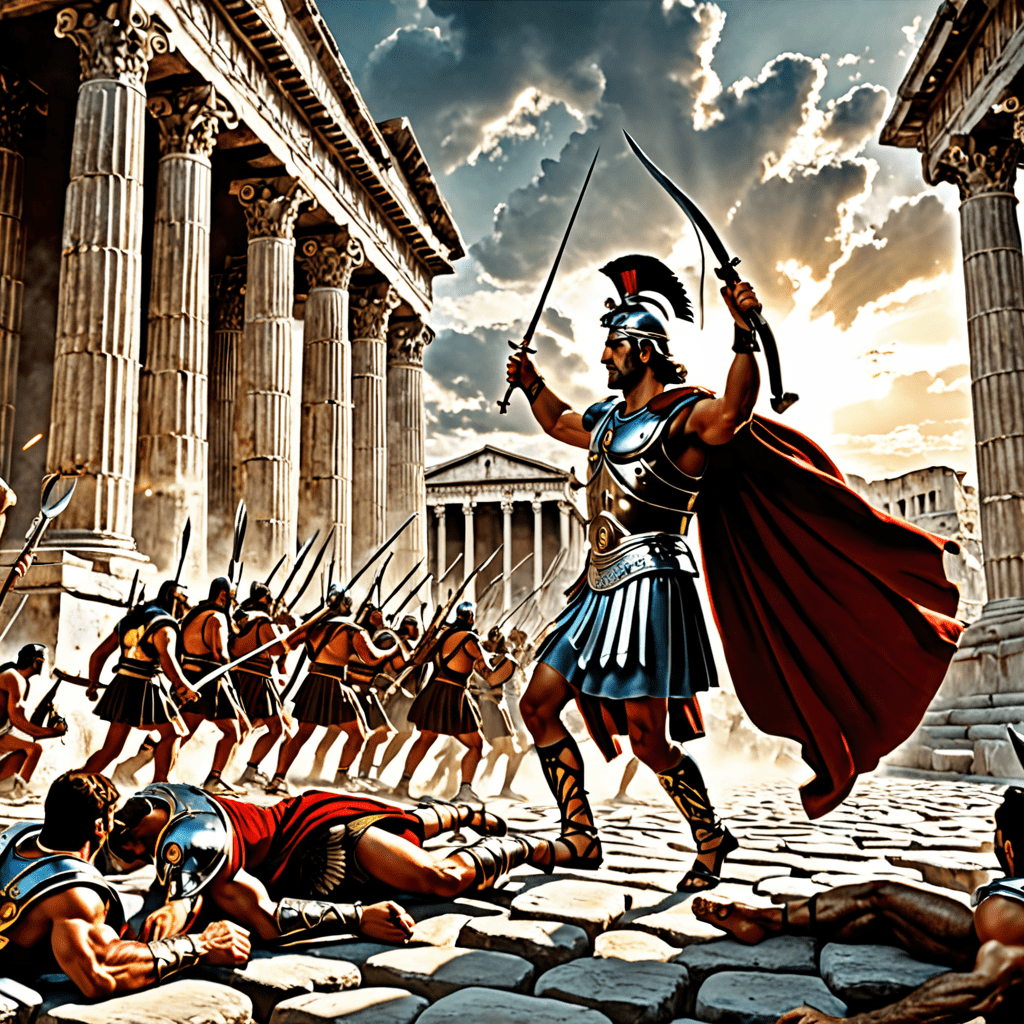Roman Mythology: Exploring the Concept of War and Peace
The Intersection of War and Peace in Roman Mythology
War and peace are recurring themes in Roman mythology, reflecting the society’s values and beliefs. Roman myths often depict tales of conflict, conquest, and the valor of warriors while also emphasizing the importance of harmony and tranquility.
In Roman mythology, Mars, the god of war, represents the power and strength of conflict. His counterpart, Venus, the goddess of love and peace, symbolizes harmony and reconciliation. This juxtaposition highlights the complex relationship between war and peace in Roman culture.
War Deities in Roman Mythology
Ancient Romans worshipped several deities associated with war. Mars, as mentioned earlier, was revered as the god of war, embodying the military might and aggression of the Roman armies. Additionally, Bellona, the goddess of war, personified the destructive aspects of conflict and conquest.
These war deities played a crucial role in Roman rituals and ceremonies dedicated to ensuring victory in battles and protecting soldiers on the battlefield. Their myths and legends often served as inspiration for warriors and leaders, emphasizing valor, strategic planning, and the honor of fighting for Rome.
The Pursuit of Peace in Roman Mythology
Despite the glorification of war in Roman mythology, the concept of peace held significant importance as well. Pax, the goddess of peace, symbolized the tranquility, prosperity, and harmony that Romans aspired to achieve during times of peace.
Roman myths often depicted Pax as a gentle and benevolent figure, promoting the idea that victory in war should ultimately lead to peace and stability for the empire. Cultivating a peaceful society was considered essential for the prosperity and longevity of Rome, echoing the values of unity and cooperation.
Reconciliation and Balance
The interplay between war and peace in Roman mythology underscores the belief that both aspects are necessary for a thriving society. While war was glorified in times of conflict and conquest, peace was ultimately the desired outcome to ensure the well-being and prosperity of the Roman civilization.
By exploring the stories of war deities like Mars and Bellona alongside peace-bringing figures like Venus and Pax, we gain a deeper understanding of the complex duality present in Roman mythology. The lessons and values conveyed through these myths still resonate today, reminding us of the timeless importance of balance, reconciliation, and the pursuit of peace amidst the chaos of war.
FAQs About Roman Mythology: War and Peace
What role did war play in Roman mythology?
In Roman mythology, war held significant importance as many deities were associated with aspects of warfare. Mars, the god of war, was one of the most prominent figures, embodying the warrior spirit and military prowess in Roman beliefs.
How was peace represented in Roman mythology?
Peace was symbolized by the goddess Pax in Roman mythology. Pax was revered as the personification of tranquility, harmony, and the cessation of hostilities. She served as a counterbalance to the warlike attributes of deities like Mars.
Were there any myths or legends that specifically explored the concepts of war and peace in Roman mythology?
Yes, one famous Roman myth that delves into the themes of war and peace is the tale of the founding of Rome by Romulus and Remus. The story reflects the duality of conflict and unity, highlighting the transition from violence and discord to peace and prosperity.





